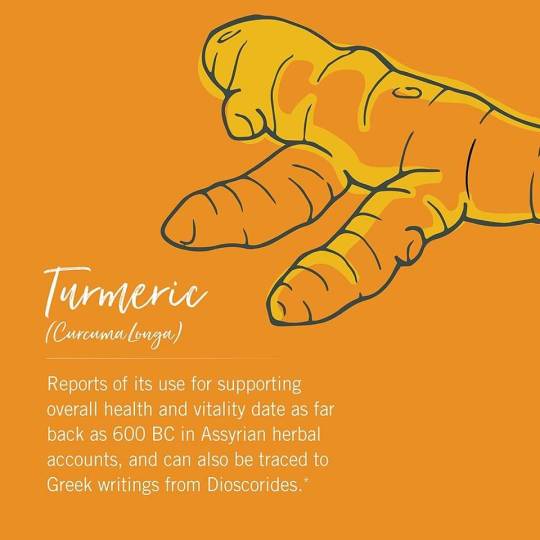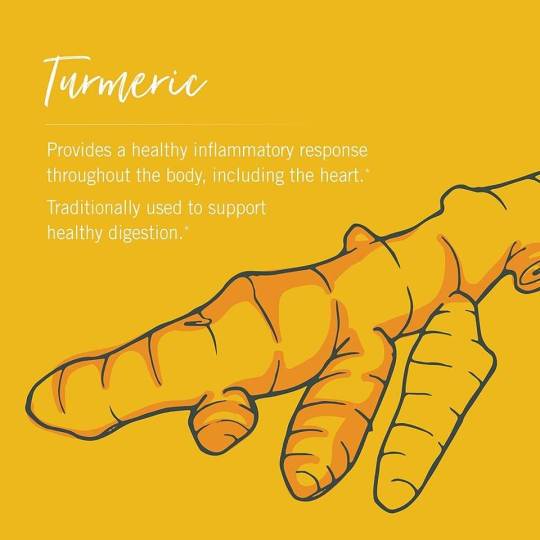#Lower Risk of Chronic Diseases:
Text
Exploring the Profound Benefits of a Vegan Diet

In recent years, the popularity of veganism has surged, driven by growing awareness of its numerous health, environmental, and ethical benefits. A vegan diet, which excludes all animal products, has been shown to offer a wide range of advantages for both individuals and the planet. From improving cardiovascular health to reducing greenhouse gas emissions, the benefits of adopting a vegan lifestyle extend far beyond the plate.
Improved Heart Health:
One of the most well-documented benefits of a vegan diet is its positive impact on heart health. Research consistently shows that plant-based diets are associated with lower risks of heart disease, stroke, and hypertension. By eliminating cholesterol-rich foods like meat, dairy, and eggs, and emphasizing nutrient-dense fruits, vegetables, whole grains, and legumes, vegans can significantly lower their levels of LDL cholesterol and blood pressure, reducing the risk of cardiovascular complications.
Lower Risk of Chronic Diseases:
In addition to heart disease, a vegan diet has been linked to a reduced risk of other chronic diseases, including type 2 diabetes, certain cancers, and obesity. Plant-based foods are rich in fiber, antioxidants, vitamins, and minerals, which play crucial roles in supporting overall health and immune function. By focusing on whole, unprocessed plant foods, vegans can help protect themselves against a host of preventable diseases and improve their long-term well-being.
Weight Management:
For those looking to manage their weight effectively, a vegan diet can be a valuable tool. Plant-based foods tend to be lower in calories and saturated fat compared to animal-derived products, making them ideal for weight loss and weight management. Additionally, the high fiber content of fruits, vegetables, and whole grains helps promote feelings of fullness and satiety, reducing the likelihood of overeating and aiding in weight control.
Environmental Sustainability:
Beyond personal health benefits, adopting a vegan diet also has significant environmental implications. Animal agriculture is a leading contributor to deforestation, habitat destruction, water pollution, and greenhouse gas emissions. By abstaining from animal products, vegans can significantly reduce their carbon footprint, conserve water resources, and mitigate the negative impacts of agriculture on biodiversity and ecosystems. Transitioning to a plant-based diet is one of the most effective actions individuals can take to combat climate change and promote environmental sustainability.
Ethical Considerations:
In addition to health and environmental reasons, many people choose to adopt a vegan lifestyle out of concern for animal welfare. The factory farming industry subjects billions of animals to unimaginable suffering, including confinement, mutilation, and slaughter. By abstaining from animal products, vegans align their dietary choices with their values of compassion, non-violence, and respect for all sentient beings. Choosing plant-based foods allows individuals to live in harmony with their ethical principles and contribute to a more humane and compassionate world.
Conclusion:
The benefits of a vegan diet extend far beyond personal health, encompassing environmental sustainability, animal welfare, and ethical considerations. By embracing a plant-based lifestyle, individuals can improve their cardiovascular health, reduce their risk of chronic diseases, manage their weight, and minimize their environmental impact. Furthermore, adopting a vegan diet offers an opportunity to align one's dietary choices with values of compassion, empathy, and respect for all living beings. As veganism continues to gain momentum worldwide, it represents a powerful force for positive change, both for individuals and the planet as a whole.
#In recent years#the popularity of veganism has surged#driven by growing awareness of its numerous health#environmental#and ethical benefits. A vegan diet#which excludes all animal products#has been shown to offer a wide range of advantages for both individuals and the planet. From improving cardiovascular health to reducing gr#the benefits of adopting a vegan lifestyle extend far beyond the plate.#Improved Heart Health:#One of the most well-documented benefits of a vegan diet is its positive impact on heart health. Research consistently shows that plant-bas#stroke#and hypertension. By eliminating cholesterol-rich foods like meat#dairy#and eggs#and emphasizing nutrient-dense fruits#vegetables#whole grains#and legumes#vegans can significantly lower their levels of LDL cholesterol and blood pressure#reducing the risk of cardiovascular complications.#Lower Risk of Chronic Diseases:#In addition to heart disease#a vegan diet has been linked to a reduced risk of other chronic diseases#including type 2 diabetes#certain cancers#and obesity. Plant-based foods are rich in fiber#antioxidants#vitamins#and minerals#which play crucial roles in supporting overall health and immune function. By focusing on whole
0 notes
Text
The Ultimate Guide to High Fiber Foods: 25 Must-Know Facts for a Healthier You
Discover the top high fiber foods and their health benefits in this ultimate guide to improving your diet and overall well-being.
Table of Contents
Introduction to High Fiber Foods
The Benefits of High Fiber Foods
Understanding Different Types of Fiber
How Much Fiber Do You Need?
Top 25 High Fiber Foods
How to Incorporate High Fiber Foods into Your Diet
Recommended Fiber Intake for…

View On WordPress
#Balanced Diet#Cholesterol Lowering#Chronic Diseases#Daily Fiber Intake#Diabetes#Dietary Fiber#Digestive health#FAQs#Fiber Benefits#Fiber Risks#Fiber Supplements#Food Guide#Health Conditions#Healthy Lifestyle#Heart health#High Fiber Foods#Insoluble Fiber#Meal Planning#Mental Health#Nutrition#Side Effects#Soluble Fiber#Top 25 Foods#Weight management#Wellness
0 notes
Text
Plant-Based Diet The Benefits of Following 4 Effective Plant-Based Diet

Make a positive, healthy change to your lifestyle by learning about the benefits of following a plant-based diet. Discover what you need for success and start reaping the rewards!
#plant-based, #plant-based diet, #benefits of plant based diet, #plant-based diets, #prettyhealthfood,
Plant-Based Diet: The Benefits of Following 4 Effective Plant-Based Diet
Improved Health
A plant-based diet may significantly reduce your risk for certain diseases, such as diabetes, heart disease, and even cancer.
Following a plant-based diet has been tied to lower blood pressure and cholesterol readings, helping reduce the risk of stroke and heart attack.
A well-rounded plant-based diet also can provide essential nutrients that keep all of your body’s systems functioning properly.
Other Effective Benefits
1. Lower Environmental Impact
2. Increased Energy Levels
3. Weight Management
plant-based, plant-based diet, benefits of plant-based diet, plant-based diets, prettyhealthfood, plant-based diets for diabetes, plant-based nutrition, low-carb diets, lower risk of chronic diseases, diets, #benefitsofexercise, whole food plant-based diet, whole foods plant-based diet, plant-based diet for beginners, whole plant-based diet, what is plant-based diet, what is a plant-based diet, plant-based diet, vegan endurance athlete diet, how to start a plant-based diet
youtube
Read More: https://prettyhealthfood.com/
Get More Offers: https://museemarket.com/
https://www.youtube.com/channel/UCdHGHF8HE8tN5kjHMM4f5-g
#plant-based#plant-based diet#benefits of plant-based diet#plant-based diets#prettyhealthfood#plant-based diets for diabetes#plant-based nutrition#low-carb diets#lower risk of chronic diseases#diets#benefitsofexercise#whole food plant-based diet#whole foods plant-based diet#plant-based diet for beginners#whole plant-based diet#what is plant-based diet#what is a plant-based diet#vegan endurance athlete diet#how to start a plant-based diet#Youtube
0 notes
Text
Get more sun!
The mental and physical benefits of getting sun every day include but are not limited to:
Vitamin D production: Sunlight is the primary source of vitamin D, a nutrient that is essential for healthy bones and teeth, as well as immune system function and mental health.
Improved mood: Sunlight exposure triggers the release of serotonin, a hormone that can help improve mood and reduce symptoms of depression and anxiety.
Regulation of circadian rhythm: Exposure to sunlight can help regulate the body's natural sleep-wake cycle, leading to better sleep and overall health.
Reduced inflammation: Sunlight exposure has been shown to reduce inflammation in the body, which can help reduce the risk of chronic diseases such as heart disease and diabetes.
Improved immune function: Vitamin D produced by the body in response to sunlight exposure plays a critical role in immune function, helping to protect against infections and disease.
Lowered blood pressure: Exposure to sunlight has been shown to lower blood pressure, which can reduce the risk of heart disease and stroke.
Improved cognitive function: Sunlight exposure has been shown to improve cognitive function, including memory, attention, and processing speed.
Better bone health: Vitamin D produced in response to sunlight exposure plays an essential role in bone health, helping to prevent conditions such as osteoporosis.
Reduced risk of certain cancers: Sunlight exposure has been linked to a reduced risk of certain types of cancer, including breast, colon, and prostate cancer.
Improved skin conditions: Sunlight exposure can improve skin conditions such as acne, psoriasis, and eczema, as well as improve the appearance of fine lines and wrinkles.
Enhanced physical performance: Sunlight exposure can increase endurance and physical performance, as well as improve muscle strength and flexibility.
Increased energy: Sunlight exposure can increase energy levels, helping to combat fatigue and improve overall productivity.
The amount of sun exposure needed varies depending on several factors, such as skin type, time of day, geographic location, and the season. However, in general, it's recommended to get about 10-30 minutes of sun exposure daily, ideally in the morning or late afternoon when the sun's UV rays are not as strong.
#healthy lifestyle#health tips#health and wellness#self confidence#self care#high value mindset#high value woman#high value men#personal development#level up journey#self love journey#health is wealth
917 notes
·
View notes
Text
Where My September Babies At
There's a scene in the novel where Eddie mentions that studies show children born in the first three months of the year have distinct advantages over their later-born peers. A reader pointed out some issues with the thesis, so it's a good thing I remember where I picked that trivia up, because maybe I got it wrong!
I can go back and listen to the podcast where I heard it, but I thought I'd google around first in case I could find something faster to confirm/disprove the thesis. I didn't find what I was looking for but I did find a BUGFUCK INSANE breakdown of what is likely to a happen to a child depending on their birth month.
I make no claims to this being accurate; they absolutely do not cite their sources and the whole page reads like bad clickbait, but anyway tag yourself, I'm gonna live to be 100:
January – Higher risk of developing Crohn’s disease, epilepsy, and Alzheimer’s.
February – Increased risk for death from lung cancer.
March – Higher risk for certain kinds of heart disease.
April – Increase risk for becoming an alcoholic or developing an eating disorder.
May – Lower risk for developing chronic illness.
June – Higher risk of developing vision problems.
July – Increased risk for developing autism and asthma.
August – More likely to be labeled as a problem student.
September – More likely to live to see 100 years of age.
October – Higher risk for insect bites, chest infections, and STIs.
November – More likely to be left-handed, the risk for heart problems and lung cancer.
December – Lower risk for allergies and asthma.
#it's the super specific ones that get me#higher risk for bug bites#more likely to be labeled a problem student#LEFT HANDEDNESS#what the fuck
187 notes
·
View notes
Text
Debunking Wellness Trends: Seed Oils
One aspect of the growing wellness trends on social media is the idea that seed oils are poisoning the population and need to be avoided to reach better health/heal health conditions/conserve fertility/etc. They’re being called “the hateful eight”, and there’s a lot of people doing the #seedoilfree lifestyle. Seed oils are being blamed for headaches, low immunity, disrupted attention and thinking, diabetes, and more.
(Seed oils include canola, corn, cottonseed, grapeseed, rice bran, safflower, soy and sunflower oil)
Toxicity Claims
Current scientific evidence does NOT support claims that seed oils are “toxic”.
Now, if you begin to cut out foods such as fried foods (like fries) or packaged snacks, you may feel better. A lot of people are attributing this feeling to removing seed oils, but these foods are usually high in refined carbohydrates, sodium and sugar which is why they’re associated with more negative health outcomes.
Another fear is that the “toxicity” comes from production byproducts. Heat and solvents like hexane are used to extract oil from seeds, which apparently introduces chemical additives and unstable molecules, which then can turn polyunsaturated fats into harmful trans fats. Realistically, hexane is a bigger threat to the environment and workers in case of inhalation – trace amounts in the oil are still being studied, but so far there’s no concerning data. They’re also heated for short periods, and actually have fewer trans fats than products like milk or butter.
Omega-6
Additionally, omega-6 (found in nuts and seeds, and a dominant polyunsaturated fat in seed oils) is also not “toxic”. In fact, it’s been scientifically linked to lower cholesterol, lower blood sugar and reduced heart disease risk. The argument against omega-6 is that it’s responsible for chronic inflammation – omega-6 linoleic acid is converted into arachidonic acid in the body, which is a component of inflammatory compounds. Only 0.2% of linoleic acid we eat turns into arachidonic acid, and not all the compounds cause inflammation – arachidonic acid is a complex molecule, and it also has some anti-inflammatory effects. Linoleic acid is also an essential fatty acid that our body can’t make itself, and we use it to produce cell membranes and for skin health.
Another claim is that our omega-3: omega-6 ratio is out of balance, and that this is because our ancestors ate a much more balanced ratio than we do today. We DO eat more omega-6 fats than omega-3, but the claim that we eat 20 to 50x more is misinformation – it’s closer to 10:1. Instead of cutting omega-6, the better solution is to try and introduce more omega-3 fats into your diet.
Realistically, a lot of the online discourse about seed oils is misunderstanding scientific reports + deliberate fear-mongering. If you do have concerns about something in your diet causing health issues, seek advice from a trained medical professional who can give you evidence-based ideas and solutions to help you!
(Some articles to start if you want to know more on this topic 1 2 3)
#ive been promising to say something about this forever lmao i finally got to it#wellness trends#<- my tag for this stuff#i honestly feel bad for people who i see getting anxious about these kinds of things!!! :((#katie rambles
126 notes
·
View notes
Text

Health and Fitness: Tips and Benefits
Health and fitness are two interrelated concepts that affect our well-being and quality of life. Being healthy means having a good physical and mental condition, free from diseases and disorders. Being fit means having the ability to perform physical activities with ease, strength, and endurance. Both health and fitness can be improved by following some simple tips and enjoying some benefits.
Tips for Health and Fitness
One of the most important tips for health and fitness is to exercise daily for at least an hour. Exercise can help you burn calories, strengthen your muscles, improve your cardiovascular system, and boost your mood. You can choose any type of exercise that suits your preferences and goals, such as walking, running, cycling, swimming, dancing, or lifting weights. The key is to be consistent and challenge yourself gradually.
Another tip for health and fitness is to eat the right foods and portion each meal. Eating a balanced diet that includes fruits, vegetables, whole grains, lean proteins, healthy fats, and water can provide you with the nutrients you need to function properly and prevent diseases. You should also avoid or limit foods that are high in sugar, salt, saturated fat, and processed ingredients. Additionally, you should control your portion sizes and avoid overeating or skipping meals.
A third tip for health and fitness is to keep track of calories and food intake per day. Knowing how many calories you consume, and burn can help you balance your energy intake and expenditure. This can help you maintain a healthy weight or lose weight if needed. You can use a food diary, an app, or a website to record what you eat and drink every day. You can also use a calorie calculator to estimate how many calories you need based on your age, gender, height, weight, and activity level.
A fourth tip for health and fitness is to be sure to get enough sleep. Sleep is essential for your body and mind to recover from the day’s activities and prepare for the next one. Sleep can also affect your appetite, metabolism, immune system, mood, memory, and concentration. You should aim to get at least seven to nine hours of quality sleep every night. To improve your sleep hygiene, you should follow a regular sleep schedule, avoid caffeine, alcohol, nicotine, and screens before bed, create a comfortable and dark sleeping environment, and relax before sleeping.
A fifth tip for health and fitness is to stay motivated. Motivation is the driving force that keeps you going despite the challenges and obstacles you may face. To stay motivated, you should set realistic and specific goals, track your progress, celebrate your achievements, reward yourself, seek support from others, join a group or a class, find a workout buddy, or hire a personal trainer. You should also remind yourself of the reasons why you want to be healthy and fit.
Benefits of Health and Fitness
Health and fitness have many benefits for your physical and mental well-being. Some of the benefits are:
Reduced risk of chronic diseases: Being healthy and fit can lower your chances of developing conditions such as heart disease, stroke, diabetes, cancer, osteoporosis, arthritis, and obesity.
Improved balance and coordination: Being fit can enhance your ability to maintain your posture, move gracefully, avoid falls and injuries.
Increased energy levels: Being healthy can boost your metabolism and provide you with more fuel to perform your daily tasks.
Enhanced mood: Being fit can release endorphins in your brain that make you feel happy. Being healthy can also reduce stress hormones that cause anxiety.
Better self-esteem: Being healthy and fit can improve your appearance, confidence, and self-respect.
Conclusion
Health and fitness are important aspects of our lives that we should not neglect. By following some simple tips such as exercising daily, eating right, tracking calories, getting enough sleep, and staying motivated, we can improve our health and fitness levels. By doing so, we can enjoy many benefits such as reduced risk of chronic diseases, improved balance and coordination, increased energy levels, enhanced mood, and better self-esteem. Health and fitness are not only good for us but also for those around us who care about us. So, let’s start today!
#health & fitness#health and wellness#health#nutrition#weight loss#diet#fitness#healthy living#exercise#healthy eating#healthy lifestyle#healthy food#healthy diet#wellness#health tips#healthcare#prevention#health is wealth
54 notes
·
View notes
Text

This pride I’m asking the tough questions. Like whether you can be radical in your desire for communal support while going maskless.
I have friends who covid could kill. And I have friends who had no underlying health conditions but who covid laid horribly, terrifyingly low. I know chronically ill or at-risk people who can’t leave the house because of people like a woman I saw at the Sky game the other day, telling her children she was sick as she attended a game at a packed arena, or like a woman who tweeted she was going to her Eras Tour show despite a positive test.
I’ll be truthful. I don’t always wear my mask outside anymore. And I often wear cloth mask in lower risk spaces rather than a kn95 or n95, which is not as effective. In the summer heat, cloth masks are less likely to make me overheat, which is a serious issue for me in the last few years. But I still mask indoors when I’m not eating. I try to isolate and be careful over several days after any big event or travel. I am cautious and test often.
Because I refuse to spread covid. I take a lot of risks myself—going to concerts, traveling—and so I mask and take precautions. Too many people don’t. You aren’t masking just for you. You’re masking for everyone else. Every event I attend is weighed against my fear and timed against when I'll next see an immunocompromised friend.
So please, this pride, if you go to huge, packed events, mask or try to isolate and test afterwards. Your pride isn't that radical if it doesn’t put a modicom of personal comfort aside for disabled and chronically ill people who can’t celebrate this year or last year or the year before. If you're traveling a lot, maybe plan in some time to isolate before attending a concert if you're going to be maskless. And for frick's sake, if you're feeling ill or have symptoms or a known exposure, do not go to the big event. Just don't go.
This pride, thousands of people suffering from long Covid or at high risk for it can't attend any events for fear of being laid low by a disease we stopped taking seriously way too early. Please mask this pride.
101 notes
·
View notes
Text

Spices not only add flavor to food, but they also have numerous health benefits for the body. Some of the benefits of consuming spices include:
- Anti-inflammatory properties: Many spices, such as turmeric, ginger, and cinnamon, have anti-inflammatory properties that can help reduce inflammation in the body and lower the risk of chronic diseases.
- Antioxidant effects: Spices are rich in antioxidants, which help protect the body from damage caused by free radicals and oxidative stress.
- Improved digestion: Certain spices, like ginger, cumin, and fennel, can aid in digestion by stimulating the production of digestive enzymes and reducing bloating and gas.
- Blood sugar regulation: Some spices, such as cinnamon and fenugreek, have been shown to help regulate blood sugar levels and improve insulin sensitivity.
- Immune system support: Spices like garlic, oregano, and turmeric have antimicrobial properties that can help boost the immune system and protect against infections.
Overall, incorporating a variety of spices into your diet can not only enhance the flavor of your meals but also provide numerous health benefits for your body.
#food for thought#food fight#comfort food#fast food#food photography#healthy food#foodie#food#foodpics#foodlover#japanese food#foodmyheart#tw food#lunch recipes#pasta recipes#pasta recipe#salad recipes#soup recipe#recipe#reciprocity#healthy salad recipes#tra reciepts#recipies#recipes#cozy fall#cozyhome#cozy cozy#cozy living#autumn cozy#cozy art
13 notes
·
View notes
Text
Here are some healthy lifestyle habits that can improve your overall physical and mental well-being:

Eat a balanced, nutrient-rich diet focused on whole, unprocessed foods like vegetables, fruits, lean proteins, whole grains, and healthy fats. This provides energy, supports immune function, and reduces disease risk.
Stay hydrated by drinking plenty of water throughout the day. Proper hydration aids digestion, cognition, and physical performance.
Engage in regular physical activity or exercise for at least 150 minutes per week. This can include brisk walking, swimming, cycling, sports, or anything that gets your body moving.
Prioritize getting enough quality sleep, aiming for 7-9 hours per night. Adequate sleep is crucial for immune health, cognitive function, and recharging your body.
Practice stress management techniques like meditation, deep breathing, yoga, or other mindfulness practices. Chronic stress takes a toll mentally and physically.
Maintain social connections and nurture positive relationships. An active social life contributes greatly to psychological well-being.
Challenge your mind through mentally stimulating activities like reading, puzzles, or learning new skills. This supports cognitive health.
Limit alcohol consumption, avoid smoking, and practice other positive health behaviors. Reducing risky habits lowers disease risk.
Practice good hygiene like hand-washing and caring for your teeth and skin through cleansing routines. This prevents infection.
Make time for activities you enjoy and take breaks during the day to avoid burnout. Work-life balance is important.
you can learn with this e-book how to change you life
Adopting an array of health-promoting practices gives your mind and body what they need to thrive. Consistency with these habits pays dividends.
Please support my work by upvoting this POSTE, commenting below, and sharing it with your friends. Thank you from the bottom
#dream girl#girlblogging#self care#moodboard#that girl#glow up#clean girl aesthetic#clean girl#vanilla girl aesthetic#vanilla girl#it girl energy#it girl moodboard#it girl#motivation#affirmations#manic pixie dream girl#coquette girl#pink pilates aesthetic#pink pilates girl#pink pilates princess#wellness and beauty#wellness and health#wellness#just feeling#healthy#wellbeing#self love#yoga pose#yoga inspiration#girls in yoga pants
12 notes
·
View notes
Text
Grapes

Grapes offer a variety of health benefits due to their rich nutritional profile:
Antioxidants: Grapes are packed with antioxidants, such as resveratrol and flavonoids, which help protect cells from damage caused by free radicals. Resveratrol has been linked to potential heart health benefits.
Heart Health: The antioxidants in grapes, along with their high fiber content, may help lower blood pressure and reduce the risk of heart disease. Resveratrol may also improve blood flow and reduce LDL cholesterol levels.
Digestive Health: Grapes contain dietary fiber, which aids in digestion and helps prevent constipation. Fiber can also support a healthy gut microbiome.
Immune Support: Grapes are a source of vitamin C, which is essential for a strong immune system. This vitamin can help your body fight off infections and boost overall health.
Skin Health: The antioxidants in grapes can contribute to healthy skin by reducing signs of aging, protecting against UV damage, and promoting collagen production.
Cognitive Function: Some studies suggest that resveratrol in grapes may have a positive impact on cognitive function and may help protect against age-related cognitive decline.
Weight Management: Grapes are relatively low in calories and can be a satisfying, healthy snack for those looking to manage their weight.
Hydration: Grapes have high water content, which helps keep you hydrated and contributes to overall well-being.
Anti-Inflammatory Properties: The antioxidants and polyphenols in grapes may have anti-inflammatory effects, potentially reducing the risk of chronic diseases related to inflammation.
Eye Health: Grapes contain compounds like lutein and zeaxanthin, which are associated with improved eye health and a reduced risk of age-related macular degeneration.
Cancer Prevention: Some studies suggest that the antioxidants in grapes may help reduce the risk of certain types of cancer, although more research is needed in this area.

It's important to note that many of these health benefits are associated with consuming whole grapes, rather than grape juice or wine, as the processing of grapes can alter their nutritional content. Adding grapes to your diet as a snack or including them in salads and fruit bowls can be a delicious and nutritious way to enjoy these benefits.
#astrology observations#astrology notes#astrology rants#astrology#aquarius placements#cancer placements#sagittarius placements#aries placements#capricorn placements#gemini placements#leo placements#virgo placements#libra placements#scorpio placements#aquarius placements#pisces placements#Grapes#healthy#nutrition facts
32 notes
·
View notes
Text
5 Benefits of Regular Exercise and Fitness
Exercise machines and home gym equipment

Regular exercise and fitness offer several benefits that contribute to our overall well-being and longevity. Here are five key advantages:
Improved Physical Health - Engaging in regular exercise strengthens the cardiovascular system, enhancing heart health and reducing the risk of conditions like heart disease, stroke and high blood pressure. It also helps maintain a healthy weight by burning calories and building muscle mass, reducing the likelihood of obesity and related health issues such as diabetes and metabolic syndrome.
Enhanced Mental Health - Exercise isn't just beneficial for the body; it's also crucial for mental health. Physical activity stimulates the release of endorphins that promote feelings of happiness and reduce stress and anxiety levels. Regular exercise has been linked to lower rates of depression and can improve overall mood and self-esteem.
Increased Energy Levels - Exercising regularly boosts energy levels and improves circulation and oxygen flow to tissues, leading to increased stamina and reduced fatigue. Even short bouts of exercise can provide an immediate energy boost, making it easier to tackle daily tasks and activities.
Better Sleep Quality - Those who exercise regularly often experience improved sleep quality and duration. Physical activity helps promote deeper and more restorative sleep. Additionally, exercise can help reduce the symptoms of sleep disorders such as insomnia and sleep apnea, leading to a more refreshed and rejuvenated feeling upon waking.
Longevity and Quality of Life - Consistent exercise is associated with a longer lifespan and a higher quality of life in later years. It helps maintain mobility, flexibility, and balance, reducing the risk of falls and injuries as individuals age. By promoting overall health and well-being, regular exercise allows people to enjoy an active and fulfilling life well into old age.
Regular exercise is the cornerstone of physical health and mental well-being. It enhances endurance, strength, and flexibility while reducing the risk of chronic diseases like heart disease and diabetes, and also enhances mood, cognition, and sleep quality.
19 notes
·
View notes
Text



Did you know: Some of the herbs that you can use alongside #turmeric include #ginger, #cardamom, #cumin, #garlic, #cinnamon and #coriander.
•Turmeric Contains Bioactive Compounds With Powerful Medicinal Properties
•Curcumin Is a Natural Anti-Inflammatory Compound
•Turmeric Dramatically Increases the Antioxidant Capacity of the Body
•Curcumin Boosts Brain-Derived Neurotrophic Factor, Linked to Improved Brain Function and a Lower Risk of Brain Diseases
•Curcumin Should Lower Your Risk of Heart Disease
•Turmeric Can Help Prevent (And Perhaps Even Treat) Cancer
•Curcumin May Be Useful in Preventing and Treating Alzheimer's Disease
•Arthritis Patients Respond Very Well to Curcumin Supplements
•Studies Show That Curcumin Has Incredible Benefits Against Depression
•Curcumin May Help Delay Aging and Fight Age-Related Chronic Diseases
11 notes
·
View notes
Text
Published 2 Dec, 2023
Abstract
Introduction
COVID-19 poses risks and leads to complications for vulnerable populations, including children. Unreported cases of COVID-19 among children hinder our understanding of the true disease burden. In this study, we aimed to investigate the proportion of children who report no prior infection to SARS-CoV-2 but who nevertheless exhibit serological evidence of prior infection.
Methods
Between November 2022 and February 2023, we recruited children and adolescents under 19 years of age who lacked a prior history of SARS-CoV-2 infection. Participants underwent SARS-CoV-2 antibody testing to assess the presence of IgG antibodies specific to nucleocapsid (N) and spike (S) proteins. Demographic and contact information were also collected.
Results
Among 260 COVID-19-free children, the overall anti-N antibody positivity rate, which varied across age groups (4%–25%), was 9.2% (24/260). Contact with individuals who were positive for COVID-19, particularly the children's mothers, significantly increased the likelihood of antibody positivity. The median age of the 34 children who remained unvaccinated against COVID-19 was lower than that of the children who were vaccinated (6.5 vs. 9 years; p < 0.001). Until January 2024, the overall infection rate was 41.9% (99/236) among children who were negative for anti-N antibodies, irrespective of vaccination status or the presence of chronic disease.
Conclusion
We discovered previously undisclosed cases of SARS-CoV-2 infection among children. The risk of seropositivity increases substantially with household contact. Regarding children who report no prior exposure to COVID-19, clinicians must remain vigilant, as SARS-CoV-2 remains a concern.
#mask up#covid in children#covid#covid isn't over#covid 19#pandemic#covid conscious#covid is airborne#wear a mask#coronavirus#around 60% of all spread is asymptomatic
8 notes
·
View notes
Text
homegrown health literacy part 1.2: WTF is CRP?
hello and welcome back to my series about knowing when your doctors are full of shit! part 1 is about interpreting bloodwork results.
disclaimer: i’m Just Some Guy
CRP is a blood test that measures inflammation. it’s a general test, so it can’t say what chronic or acute condition is causing the inflammation, just that it’s there.
CRP stands for C-reactive protein, a type of protein in your blood. the amount of protein increases during (chronic or acute) inflammation, so a higher CRP indicates more inflammation. this could indicate an infection or an autoimmune disease, but CRP is also elevated during pregnancy. the average CRP for US Americans is estimated to be somewhere between 1 and 2 mg/L.
note: i use the units mg/L throughout this post, which is how CRP results are reported by Labcorp and Quest. some other providers report results in mg/dL, which would change the “normal” range by a factor of 10 (i.e., 0-1.0 rather than 0-10).
when used for cardiac disease screening, CRP results are interpreted as follows:
0-1 lower risk
1-3 average risk
3+ higher risk
a CRP greater than around 5 or 6 may indicate an underlying inflammatory condition. this should generally be followed by repeating the test about a month later, then conducting further screening if the result is still elevated.
while the reference range for CRP is often listed as 0-10 mg/L, meaning a lab report may not flag your result as abnormal unless it’s higher than 10, values lower than 10 can still indicate active autoimmune disease. my CRP was used in diagnosing me with ankylosing spondylitis when it was 8.0, and a range of values above 7 were consistently considered indicative of active disease.
additionally, a lower CRP should not be used to rule out autoimmune disease; as always, there is no one blood test and your doctor should consider the full clinical picture, particularly your symptoms, not just the test results. it’s relatively common to rerun ESR and CRP tests about 3 months later if they didn’t originally indicate inflammation but your symptoms still indicate you might have an autoimmune disease.
#crp#c reactive protein#bloodwork#chronic pain#chronic illness#spoonie#mac.txt#homegrown health literacy
58 notes
·
View notes
Text
Ang Chong Yi-Is plant based protein right for you?
In the ever-evolving landscape of dietary choices, the spotlight is increasingly turning towards plant-based protein as a cornerstone for a healthier lifestyle. The benefits of embracing plant-based protein extend beyond personal health, including environmental sustainability, animal welfare, and budget considerations. From complete proteins to environmental sustainability, there are numerous reasons why incorporating plant-based protein into your diet is a wise choice. Ang Chong Yi, a famous food blogger, mentioned the compelling reasons to switch to protein-based foods in his recent blog titled Ang Chong Yi- the Top Reasons to Switch to Plant-Based Proteins. Here, let us decide if plant-based protein is right for you.

Complete Proteins
A prevailing misconception suggests that plant protein is inferior to its animal counterpart. While animal protein often contains a higher protein concentration per serving, plant-based sources can also offer complete proteins. Unlike animal proteins, which inherently possess all nine essential amino acids, some plant foods may lack a few. Yet, by diversifying your plant-based diet, you can easily obtain all the essential amino acids required for optimal bodily function. Spirulina, chia seeds, and maca powder are excellent examples of plant foods classified as complete proteins.
Sustainability in Every Bite
The traditional food system, driven largely by animal agriculture, contributes significantly to climate change, pollution, and resource depletion. Following a plant-based diet is a sustainable choice, as plant proteins are more efficient and less resource-intensive to produce than their animal counterparts. Beans, peas, and lentils require minimal resources and act as natural fertilizers, reducing the need for environmentally harmful synthetic fertilizers.
Nourishing Your Body Inside Out
Plant-derived protein sources are high in protein and rich in vitamins, minerals, fiber, and antioxidants. Studies comparing vegetarians to non-vegetarians have shown that plant-based diets are associated with higher intakes of fiber, vitamins A, C, and E, as well as essential minerals like iron, magnesium, and calcium. Additionally, plant-based diets have been linked to lower body mass index, improved insulin resistance, and a reduced risk of various chronic conditions such as heart disease and stroke.
Compassionate Eating
While efforts are being made to improve conditions, there is still a lack of comprehensive legislation to protect farm animals. Choosing plant-based protein is a compassionate decision that involves decreasing the reliance on animal products, thereby promoting ethical treatment of animals within the food industry. Watch out, Ang Chong Yi talks about the Singapore dishes you should never miss, where you can find a perfect meal for nature lovers.
Budget-Friendly and Adaptable
Contrary to the misconception that a plant-based diet is expensive, it can be surprisingly budget-friendly. Beans, lentils, and peas, among the most affordable sources of plant protein, are also incredibly versatile and recipe-friendly. Even higher-cost options such as nuts and seeds become cost-effective when purchased in bulk. These sources not only provide essential proteins but also deliver good fats and a host of other vital nutrients, offering exceptional value for your money.
Summing up
Plant-based protein is not just a dietary choice. It is a holistic approach to a healthier, more sustainable, and compassionate lifestyle. Making conscious choices about the foods we consume can have a profound impact on our well-being and the world around us.
8 notes
·
View notes